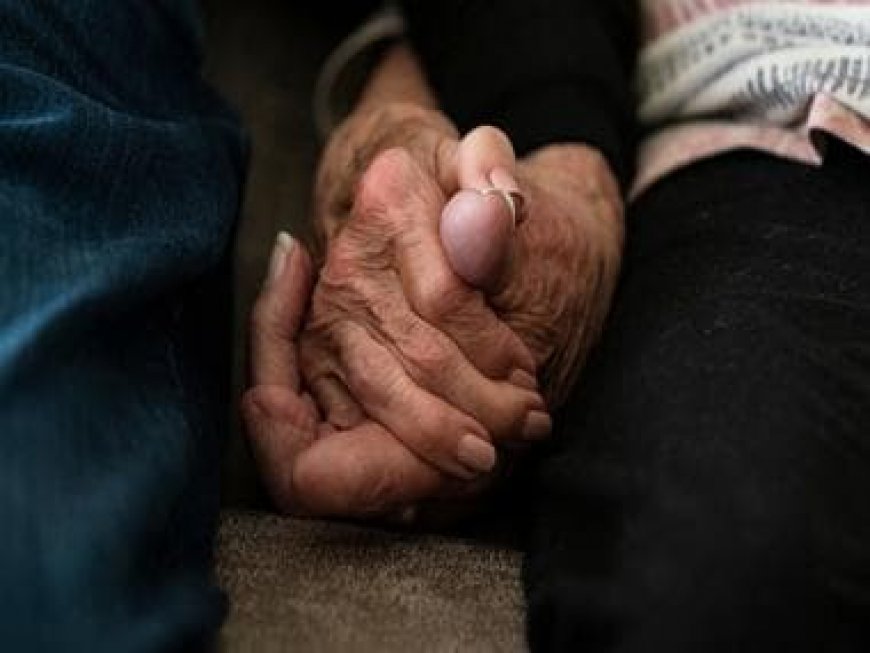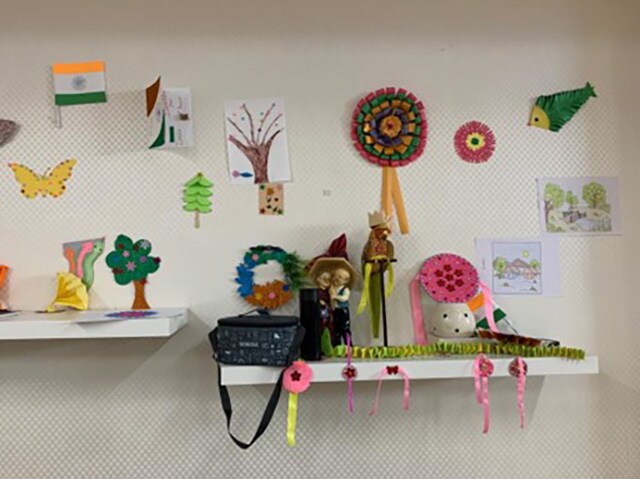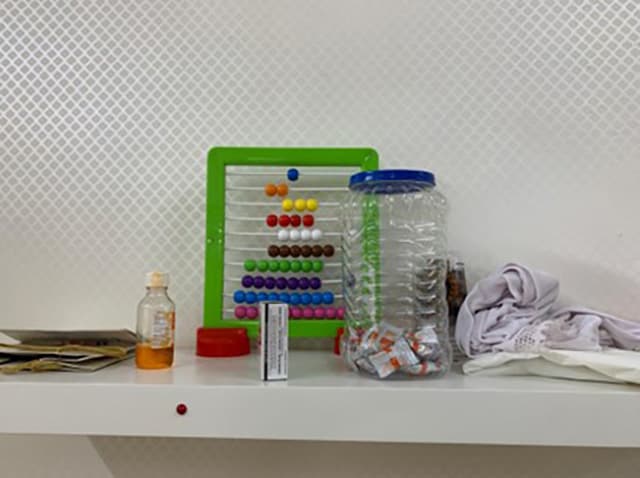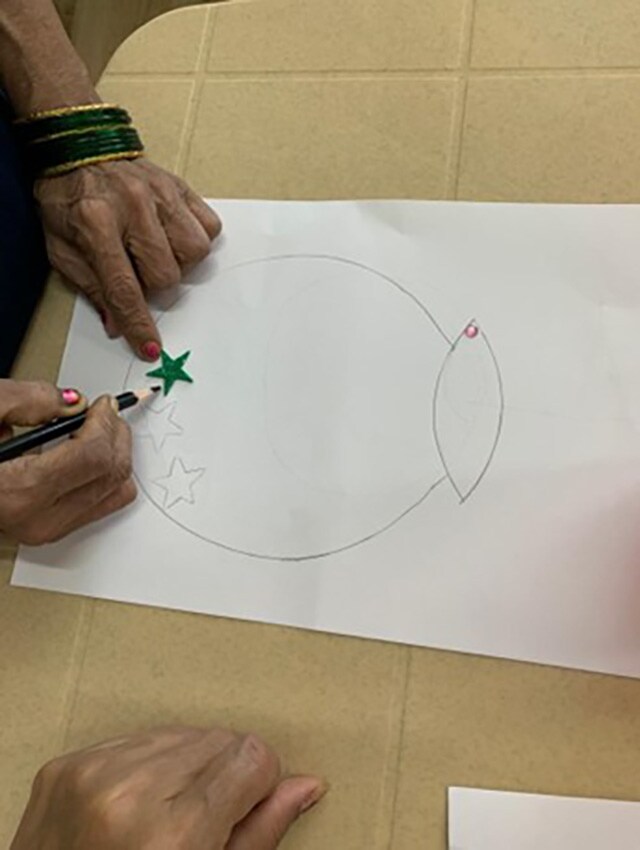World Alzheimer's Day 2023: Why caregivers of dementia patients need their stories to be heard
World Alzheimer's Day 2023: Why caregivers of dementia patients need their stories to be heard

In the recently released film Goldfish, Anamika (Kalki Koechlin) is woken up in the wee hours of the morning only to find her mother Sadhana (Deepti Naval) wandering on the streets, all dressed up for a BBC recording. Except that there is no recording. Sadhana doesn’t work at the BBC anymore. She has dementia, a condition that is defined by a gradual decline of cognitive faculties; dementia interferes with one’s memory, thinking, as well as emotions.
As dementia patients suffer gradual brain damage, they often fail to recognize loved ones; lose track of time; and forget even basic skills like reading.
The condition gets progressively worse over time and people with dementia often require extensive care and attention in attending to daily activities. Around 8.8 million Indians older than 60 years suffer from dementia.
“Just as all cancers are not the same, dementia, too, can be of several types. From a tumor in the frontal region of the brain to Parkinson’s to Alzheimer’s. Genetics and environment may play a role in deciding who gets it.” says Dr. Binita Shah, who is associated with Dignity Foundation.
There is no treatment for dementia as such. One can only delay its progress.
However, since cognitive decline is seen as a natural part of the aging process, awareness about dementia remains low. “Age-related memory loss happens due to wear and tear in the brain. The family doesn’t realize that a loved one has dementia until the later stages,” says Dr Shah.
What remains even less known is the story of the caregivers of dementia patients and the challenges and satisfactions that are unique to their vocation.
We spoke to five caregivers at the Mahim center of Dignity Foundation, Mumbai, to understand what goes into caring for a person with dementia. From P Karthykeyan to Javed, these caregivers have a range of motivations for performing the work that they do. Most stumbled into caregiving without any prior awareness or knowledge of dementia. What binds them, however, is the pride and fulfillment they derived from their jobs once they got into it.
As one walks into the center, one sees patients milling about, sitting, chatting, drawing. The walls are lined with their artwork and they are accompanied by a bunch of enthusiastic and attentive caregivers. Patience and empathy are the buzzwords here and every caregiver we speak to vouches for its importance.

A lesson in patience
Being a caregiver requires one to submit to the patient’s needs instead of imposing one’s will on them. P. Karthykeyan, 63, for instance, makes it a point to practice the activities that each patient happens to prefer. If they don’t want to indulge in any activity at the moment, he lets them be.
Karthykeyan, a volunteer at the center since December 2022, has dedicated his retirement years to serving those battling dementia. He has strong personal reasons for doing so as he lost his own father to the condition in 2001. “Instead of being home alone, I come here and spend three-four hours with dementia patients,” Karthykeyan says.
Karthykeyan feels he could have done more for his father had he had the skills and knowledge he has now. “He was the first dementia patient in our family and we couldn’t understand what was happening, why he would abscond to places.”

All other caregivers at the centre work in a paid capacity. Most were recommended to join by friends. Vivavari Vinod Kanshi, 45, for instance, started work as a cook and cleaner on being referred by a friend. “I kept observing others and gradually learned how to perform caregiving,” she says
One of the first things Vivavari learnt was to treat patients like kids. She speaks with evident fondness of a patient called Hema: “She fights, abuses, quarrels; then returns in five minutes to ask after me.”
Jyoti Arun Chikalkar, 43, a former embroidery worker, lost her job to Covid in 2020 and unexpectedly ventured on her journey as a caregiver for dementia. She has been with the center from the day of its opening. “There were only two patients here when I started.”
Jyoti estimates she has taken care of over 30 patients till date. Initially unaware of the challenges, she soon discovered the profound impact of her work.
Caring as a way of life
Javed Salim Kachi, 33, wasn’t new to caregiving when he joined the Dignity Foundation care center. He had earlier taken care of his sick Parsi employer, for whom he was driver, cook, bodyguard—all rolled into one. But being a dementia caregiver did bring with it a set of unique challenges. As someone who had not heard of the disease before, he struggled in the early days to understand patients, who could hurl abuses at one moment and then shower affection the next.
Having worked for dementia patients for over two years now, Javed confidently holds forth on the skills required to take care of them. “They will abuse you, scratch you, push you, hurt you,” he says. All that is required of a caregiver is to retaliate with love, not force. Otherwise, one risks the chance of triggering the patient. “They will hit you and forget all about it in two minutes,” Javed explains. One has to let the patients forget and zone out; forcefully bringing them back into the moment may cause patients to turn more aggressive.
Karthykeyan recounts the story of a patient called Desai who pocketed coins after playing carrom one day. When he wouldn’t give up the coins, Karthykeyan walked away. After five minutes, Desai gave up the coins on his own. It is only through such passive resistance that one can counter aggression in dementia patients.
A good caregiver also needs to be soft-spoken and polite, which in turn soothes and calms the patients. “Even at your home, older people may ask you your name multiple times. You do not get irritated with them. You should be patient with people here in the same way,” says Karthykeyan.
This is easier said than done, however. Being a caregiver has worsened Javed’s migraine and he takes medication to manage it. When he drives the patients into the center every morning, he is filled with fears of a mishap. “In the evenings, I am accompanied by a colleague; but in the mornings, I am alone with the patients. I keep thinking, what if they open the gate and leave?”
Caring for dementia patients requires close monitoring. Leaving a single gate open is a matter of risk and requires vigilance. When it’s time to leave in the evenings, the employees are strategically positioned at different points—the gate, the lift, downstairs—to ensure that no patient goes missing. Some of the patients carry name tags around their necks at all times. This is to ensure that even if they get lost, they might be able to find a way back.
All in a day’s work
The regular patients arrive from Monday to Friday and they spend their days engaging in activities like drawing, chess, carrom, craft, and so on. The patients require this exercise to improve their cognitive faculties to some extent. “If you spend the whole day in a room, won’t your mental health start to worsen, too?” asks Javed, stressing the importance of professional care for dementia.

“The memories may be gone, but the feelings remain,” asserts Javed, talking about the importance of receiving love and attention at the centre.
Although the patients spend days and months with each other, however, they mostly don’t recognize one another. “Only the early stage patients can recognize others. Kumud, here, remembers names and addresses. Most others don’t,” says Javed. He goes on to add that most patients hardly remember the names of their family members. When asked if they have kids, they might reply in the affirmative or not. Only the spouses names’ remain on their tongues even after most others are forgotten. One Mr. Sehgal, for instance, remembers his wife Manju’s name but doesn’t remember those of his daughters.
A world of its own
A dementia patient is more likely to live in the past than in the present. A petite old lady from Ludhiana often replies that she is 30 years old when asked about her age. Patients remember what they did yesterday but not what they did today. When confronted with a random face, they sometimes see a daughter in it, sometimes a mother, and sometimes they don’t recognise it at all.
Karthykeyan narrates the story of another patient who had worked at a school for almost 40 years before she was diagnosed with dementia. “She could still read books but when asked to single out letters from a pool of alphabets, she was unable to do it, ” he says.
The most disorienting thing about talking to a dementia patient is the lack of coherence in their speech. “The trick is to roll with it and respond to them in the same way. Since you won’t understand what they say and they won’t understand what you say,” advises Javed.
Patients often need to be assisted in routine tasks due to age as well as cognitive decline. Selvi, 37, who has been a caregiver for only 4 months, says that Sehgal needs help with brushing, bathing, and eating on most days. “Once in a while, if he is feeling well, he might brush or change on his own.”

Particular triggers may spur aggression in some patients. For instance, Sehgal refuses to eat on most days even if he is hungry. One has to be patient and sit through his anger, explains Selvi. Other patients have to be assisted with eating because they forget, for instance, to mix rice and dal on a plate. Patients also often engage in repetitive behaviours, imitating the actions or words of others. Some patients, for example, keep lining up to pee in front of the washroom because they see others do it.
The lady from Ludhiana doles out the same advice over and over when one sits next to her. “Whenever you don’t understand how to do something, it’s best to ask,” she says.
All caregivers at the centre stress on the importance of love and patience when it comes to dealing with patients. But they also draw a line when they need to. Javed says that he makes it a point to not interact with patients beyond his hours at the center. If a patient happens to call him, he just nudges them to talk at the center the next day.
“You have to maintain some distance with them. If you get too close, they might get too attached to you,” he says. Distance is one of the first lessons that is imparted to caregivers at their training.
There are other ways in which lines are drawn at the center. Sometimes patients get out of hand and display unmanageable aggression. Javed recounts the incident that happened with a patient who had had the distinction of receiving medals from Kalam. “It was a usual day. We played darts and carrom and went down. But once we were in the car, he got uncontrollable. He didn’t recognise us and wanted to go home on his own. He hit six of us, including two women. I had chest pain for almost fifteen minutes after he hit me.”
The centre had to let go of the patient on that day. There are two kinds of aggression, Javed explains. One is verbal. Someone named Lata, for instance, hurls invectives the whole day. But one can figure out ways to calm her. But if patients show physical aggression, there is no recourse but to let them go. This is especially important because other patients may imitate and follow suit.
It’s hard to pinpoint why some patients are aggressive and others are not. But on bad days, when a patient displays more aggression than usual, caregivers find it best to take them to a corner and listen to them instead of shutting them down with force.
“You have to talk to them politely. Sudha, for example, won’t respond if you call her roughly as Sudha. You have to call her Sudha ji,” says Vivavari.
“When they are feeling affectionate, they stroke our cheek lovingly,” says Jyoti.
When it’s hard to go on
So what keeps the caregivers going on a rough day? Would they stop if they could? For Karthykeyan, the answer is simple; as a volunteer, he could stop anytime he wished to. Others, like Jyoti, like the emotional fulfillment they derive out of the job. Javed thinks of his job as a service and says he likes the idea of someone waiting for him and needing his assistance.
“The job is stressful, but we put our heart into it,” says Jyoti.
Vivavari won’t let the pressures of the job get to her head. On a bad day, she returns home, puts on music, and tries to relax and forget.
The authors are students of media at SCM Sophia Polytechnic, Mumbai. Views expressed in the above piece are personal and solely that of the author. They do not necessarily reflect Firstpost’s views.
Read all the Latest News, Trending News, Cricket News, Bollywood News,
India News and Entertainment News here. Follow us on Facebook, Twitter and Instagram.
What's Your Reaction?



























































